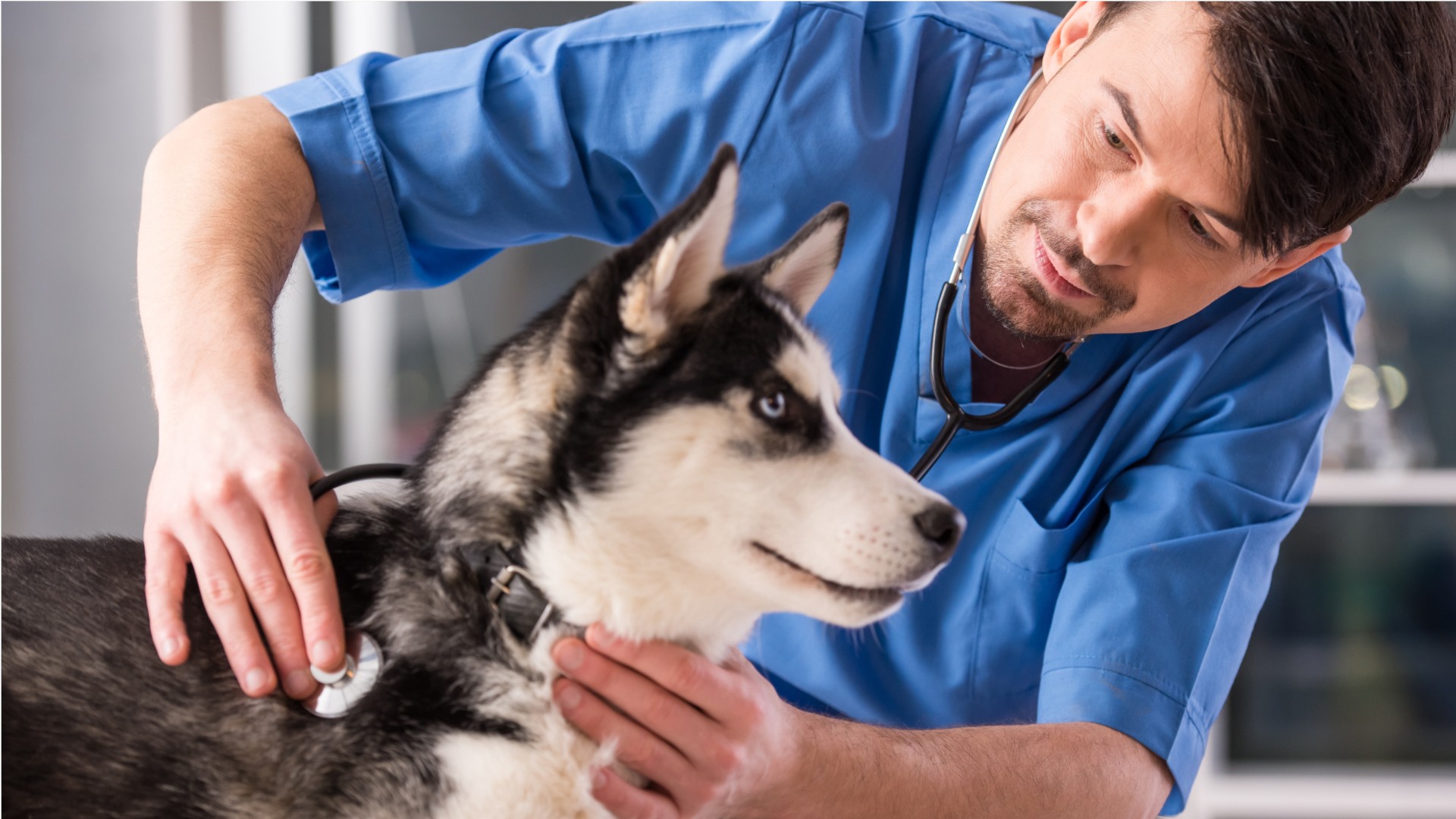Veterinarians
Doctor of Veterinary Medicine (DVM), Emergency Veterinarian (Emergency Vet), Small Animal Veterinarian (Small Animal Vet), Veterinary Medicine Doctor (DVM)
 Select a military branch to see samples.
No similar titles were found.
Select a military branch to see samples.
No similar titles were found.
Animal Care Specialist; Field Veterinary Service; Senior Veterinarian (Immaterial); Veterinary Biomedical Scientist; Veterinary Clinical Medicine; Veterinary Corps Officer; Veterinary Laboratory Animal Medicine; Veterinary Pathology; Veterinary Preventive Medicine
No similar titles were found.
No similar titles were found.
Marine Mammal Systems Operator
No similar titles were found.
What they do:
Diagnose, treat, or research diseases and injuries of animals. Includes veterinarians who conduct research and development, inspect livestock, or care for pets and companion animals.
On the job, you would:
- Treat sick or injured animals by prescribing medication, setting bones, dressing wounds, or performing surgery.
- Inoculate animals against various diseases, such as rabies or distemper.
- Examine animals to detect and determine the nature of diseases or injuries.
Knowledge
Health
- medicine and dentistry
Math and Science
- biology
- arithmetic, algebra, geometry, calculus, or statistics
Business
- customer service
- human resources (HR)
Arts and Humanities
- English language
Skills
Basic Skills
- listening to others, not interrupting, and asking good questions
- reading work related information
Problem Solving
- noticing a problem and figuring out the best way to solve it
People and Technology Systems
- thinking about the pros and cons of different options and picking the best one
- measuring how well a system is working and how to improve it
Abilities
Verbal
- communicate by speaking
- listen and understand what people say
Ideas and Logic
- make general rules or come up with answers from lots of detailed information
- notice when problems happen
Math
- choose the right type of math to solve a problem
- add, subtract, multiply, or divide
Hand and Finger Use
- put together small parts with your fingers
Personality
People interested in this work like activities that include practical, hands-on problems and solutions.
They do well at jobs that need:
- Perseverance
- Empathy
- Stress Tolerance
- Self-Control
- Achievement Orientation
- Intellectual Curiosity
Technology
You might use software like this on the job:
Data base user interface and query software
- IDEXX Laboratories IDEXX VPM
- Microsoft Access
Presentation software
- Microsoft PowerPoint
Medical software
- American Data Systems PAWS Veterinary Practice Management
- Vetport
Education
Education: (rated 5 of 5)
doctoral degree or
post-doctoral training
usually needed
post-doctoral training
usually needed
Job Outlook
Bright
New job opportunities are very likely in the future.
Explore More
- Allergists & Immunologists
- Emergency Medicine Physicians
- Physicians, Pathologists
- Veterinary Assistants & Laboratory Animal Caretakers
- Veterinary Technologists & Technicians
You might like a career in one of these industries:
See more details at O*NET OnLine about Veterinarians.





